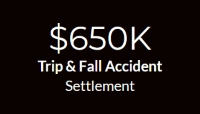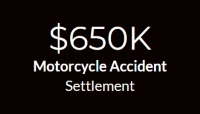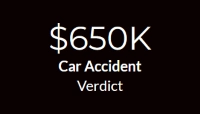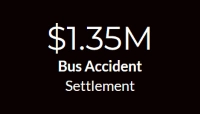New York City is one of the most walkable and least car-dependent cities in the country. Over half of households in New York City don’t own cars.
Even though the city is walkable, there are times when taking an Uber or Lyft makes more sense than walking or public transportation.
Millions of people use rideshare apps, especially in cities where car ownership is low. If you’ve been in a rideshare car before, you know that they aren’t more or less safe than other cars on the road.
What happens if you get in a rideshare accident? Whether you are a passenger, pedestrian, or another driver, getting injured by a rideshare driver may qualify you for compensation.
First, you need to determine who the at-fault driver is and how their insurance coverage comes into play. Keep reading to learn who is liable in a rideshare accident.
How Is Liability Determined in a Rideshare Accident?
Liability must be determined in a rideshare accident case, but these cases come with unique challenges.
Rideshare drivers are classified as independent contractors, unlike traditional taxi services where drivers are employees of the company. What you would do after a taxi accident differs from filing a rideshare accident claim.
The distinction between the two plays a critical role in determining liability. Liability is determined by finding out:
- Whether the rideshare driver caused the accident
- Whether the rideshare driver was using the app when the accident occurred
- Whether other parties contributed to the cause of the accident
A rideshare accident lawyer can help you investigate whether the at-fault driver, a third party, or the employer of the driver is liable for the damages. The employer being the rideshare company itself.
Rideshare companies offer varying levels of auto insurance coverage depending on the status of the driver at the time of the accident.
Determining if the Driver Was Working at the Time
One of the most important things to determine in rideshare accident liability is whether or not the driver was working at the time of the accident.
Ridesharing companies are responsible for insuring their drivers in case they get into an accident while performing ridesharing services. Liability will depend on how the rideshare driver was engaged with the app.
When drivers are logged into the app but haven’t received a ride request, they are covered by the lowest level of liability insurance. Rideshare companies offer higher coverage for passenger trips.
These are the scenarios a rideshare lawyer will walk you through to help determine liability:
The Rideshare App Is Off or the Driver Is Not Logged In
If the driver isn’t logged into the app to begin working, the rideshare company is not liable for accidents that the driver may cause.
Rideshare drivers will have to refer to their own auto insurance to cover any costs that might arise from a crash. A lawyer will treat this case like a normal car accident case.
The Rideshare Driver Has the App on and Is Waiting for a Rider
As soon as the driver engages in the rideshare app, even if they aren’t actively driving a passenger, the ridesharing company takes on some liability.
Ridesharing companies have tried to prove that they were not liable for accidents when drivers didn’t have ridesharing passengers in the car. Lawyers have won settlement cases going against this belief of ridesharing companies.
This forces rideshare companies to offer low levels of coverage for employees using the app, regardless if they are waiting to get a ride or not.
When the app is on, but the driver has yet to receive a ride request, a rideshare accident victim should contact the personal auto insurance company of the driver first.
If their personal policy doesn’t cover the accident, the ridesharing company may cover the costs, up to certain policy limits. Rideshare companies maintain these insurance coverage limits when personal insurance doesn’t apply:
- $50,000 in bodily injury liability coverage per person
- $25,000 in property damage coverage per vehicle accident
- $100,000 in bodily injury protection per vehicle accident
The policy covers economic and non-economic damages suffered by rideshare accident victims.
To reap these coverage advantages, it’s important to submit an accident through the rideshare app. This ensures there is proof of a reported accident on their end.
The Rideshare Driver Is Actively Picking Up or Transporting a Passenger
When a driver is on their way to pick up a passenger, or actively giving a ride, the ridesharing company’s insurance policy should cover the full cost of the accident.
In this situation, the following coverage options apply:
- $1 million for third-party auto liability coverage
- Uninsured/underinsured motorist bodily injury coverage
- Contingent comprehensive and collision coverage up to the cash value of the car with a $2,5000 deductible
If a third party is responsible for causing the ridesharing accident, pursue compensation from that party’s insurance company instead.
Rideshare Insurance Requirements in New York
In New York, a rideshare driver must maintain certain auto insurance coverages to drive with a rideshare company. The state of New York requires these coverages:
- Minimum financial responsibility insurance or liability coverage
- Uninsured motorist coverage
- Personal injury protection coverage
- Financially responsible coverage through the rideshare company when using the app
Rideshare insurance in New York can range from $214 to $731 per month depending on the insurance provider and other factors, such as your location and driving history.
Where Can I Pursue Compensation?
Once rideshare accident liability is determined, you can pursue coverage from the correct party. Based on the scenario, you might receive compensation from any of the following:
Rideshare Driver’s Insurance Company
When a rideshare driver is not using their app, you should pursue compensation from their auto insurance company. If the driver refuses to hand over their insurance information, alert law enforcement of the issue.
This is the same coverage you would ask about for any regular non-commercial driving accident on the road. Every rideshare driver is required by their company to carry their own auto insurance while on the road.
Depending on the driver’s coverage, you can file a claim to recover compensation for medical expenses and property damages related to the collision.
Rideshare Company’s Insurance Coverage
Rideshare accident coverage from Uber or Lyft can cover all or some of your accident-related costs. If these companies are deemed liable for the accident, they can provide coverage for property damage, medical bills, and other losses.
Rideshare companies are responsible for providing uninsured motorist (UM) or underinsured motorist (UIM) coverage when their driver is not sufficiently insured.
Ridesharing services have to have a $1 million liability policy in place. If a rideshare driver is found to have driven recklessly or if they neglect traffic laws, the rideshare company can be held liable.
If a rideshare company fails to vet and train drivers, they can be held liable for the accident. The legal concept where companies are responsible for the actions of their employees is “the principle of vicarious liability”.
Other coverages may apply when you file a rideshare accident claim. An accident lawyer can discuss these options with you in detail.
Vicarious Liability
Vicarious liability is a legal principle established by the court to hold employers accountable for the safety of their employees. They must also ensure that wrongful or negligent acts don’t go unpunished.
Since an employer has a duty to ensure employees are trained and behave in a certain manner, they should be responsible for damages caused by employees.
For a company to be held vicariously liable, specific conditions must be met. It has to be established that the employee was acting on behalf of the company when the act occurred.
Second, the employer must have had a duty to ensure independent contractors behaved responsibly and were properly trained. If the employer fails to take the appropriate steps to ensure employee safety, the employer can be held liable.
When all of these conditions are met, the employer is held vicariously liable and has to cover the damages of the victim.
Third Party’s Insurance Company
The rideshare driver and rideshare company may hold no liability in certain accidents. Third parties in rideshare incidents can include:
- Another motor vehicle driver
- The at-fault vehicle maintenance company (if a malfunction caused the accident)
- The manufacturing company of the at-fault vehicle (if the design was defective and caused the accident)
- A municipality (if hazardous road conditions caused the accident)
If a third party was involved or responsible for the accident, you can pursue compensation from them through a personal injury lawsuit or insurance claim.
A vehicle manufacturer could be responsible for all types of automobile accidents. If faulty parts caused an accident or made injuries worse, you can file a claim against the vehicle manufacturer.
For example, the rideshare driver’s vehicle could get rear-ended by another driver. Injuries from the accident are minor, but it causes a faulty airbag to explode leading to more extensive injuries.
In this situation, an airbag manufacturer is likely to be held liable for some or all of the injuries because it made the injuries worse.
What Damages Can I Recover?
If you were injured in a rideshare accident, you might be eligible for compensation. The at-fault party held liable for the damages will have to recover the cost of your losses.
Damages are categorized as economic or non-economic. Economic damages are objective and include monetary losses such as lost income from injury, medical costs, and auto repairs.
If you missed work while recovering from a rideshare accident, you can recoup your lost wages. Medical costs include current and ongoing medical care, and future medical expenses related to the injury.
If your vehicle was damaged during the accident, you could receive compensation to repair your car.
Non-economic damages are subjective. These are non-monetary losses that include emotional distress and pain and suffering.
Many people who are victims of car accidents experience emotional distress. If you are suffering from post-traumatic stress disorder (PTSD), anxiety, or depression, you might be eligible for these wages.
In your claim, you can include ongoing physical pain from your injuries to recoup pain and suffering compensation. Non-economic damages also include compensation for physical injuries, such as:
- Whiplash
- Broken bones
- Traumatic brain injuries
- Cuts and lacerations
- Spinal cord injuries
From the details you tell your lawyer about the accident, they can help you calculate your damages.
Punitive Damages
In some cases, you can seek out punitive damages. However, these damages aren’t commonly awarded in rideshare accident cases. Punitive damages require proof of extreme negligence or malicious intent of the at-fault driver.
Consulting with a rideshare accident attorney can help you understand the specific damages you can pursue. It will depend on the circumstances of the case and the jurisdiction.
What to Do After a Rideshare Accident
Knowing the steps to take after a rideshare accident can ensure your rights. Once you determine that the environment is safe and you are out of harm’s way, this is what you should do:
- Call the police to file a police report
- Call an ambulance for anyone who needs medical attention
- Get contact information of involved members (names, phone numbers, and insurance details)
- Notifying the rideshare company of the accident
- Identify witnesses and ask for their contact information
- Take pictures of the accident scene and all involved vehicles
- Contact a rideshare accident lawyer
Following these steps in order is critical to how you move forward with your accident case.
Filing a Police Report
You should always call law enforcement after any car accident. The police report filed will come in handy throughout the claims process.
If the at-fault driver refuses to provide you with their insurance information, the police can help. They will collect the insurance details and write them up in the police report.
Providing Evidence
Filing a police report and documenting the accident can help your lawyer support your claim. Evidence can help determine who is liable in a rideshare accident.
For instance, when you take pictures of the involved vehicles in the crash, it might be obvious which car is at fault. You should also take pictures of your injuries.
Additionally, gathering witness statements ensures you have hard evidence backing your claim. The more evidence you can provide, the easier your claim is to prove.
Always let the evidence speak for itself even if you believe you know who was at fault for the accident. Making admissions or statements can potentially weaken your claim. Let a lawyer argue liability on your behalf.
Seeking Medical Attention
After a rideshare accident, it’s important to seek medical attention even if you don’t think you are severely injured. A medical evaluation safeguards your health and provides you with evidence of injuries you sustained.
A recent and clear medical record that links your injuries to the accident can make it difficult for insurance providers to dispute claims. Seek medical attention as soon as possible so that the dates line up.
Hiring a Rideshare Accident Lawyer
It’s hard to navigate liability on your own. A reputable rideshare accident attorney can help you determine fault by:
- Investigating the accident evidence
- Examining the police report
- Talking to witnesses and first responders who were on the scene
- Determining liability
- Filing an insurance claim to the correct provider
- Negotiating a settlement amount
- Representing you in court, if necessary
A lawyer will help you file a rideshare accident claim by gathering your evidence and medical reports. This can help prove liability and ensure the victims of the accident are protected.
Filing an Insurance Claim
A direct lawsuit against a rideshare company might not be possible in your situation. However, this doesn’t mean that the company is off the hook for your injuries and property damage.
Rideshare companies are required to maintain a minimum level of liability insurance coverage for every rideshare driver. The policy limits are higher than the coverage limits held by individual drivers.
Filing an insurance claim for a rideshare accident is similar to filing an insurance claim for any auto accident. A professional lawyer can guide you through the process and explain the statute of limitations of this type of claim.
Wrongful Death in a Rideshare Accident
If you lose a loved one in a rideshare accident, you can discuss your legal options with an attorney. You can hold the rideshare driver and the company legally responsible and possibly receive compensation.
Family members of the deceased can hire a legal team to recover damages they’ve incurred due to the loss of a loved one. Damages might include:
- Loss of consortium (the marital relationship and the decedent’s relationship with other family members)
- Loss of future earnings (the income the deceased would have earned during their remaining working years)
- Medical bills
- Burial and funeral costs
The issue of filing a rideshare accident claim becomes even more complicated when there is a death involved. You can trust that a professional rideshare accident attorney will handle your case with care.
The Importance of a Rideshare Accident Lawyer
If you get involved in a rideshare accident, hiring a lawyer is the main task that can protect your rights. If you want to receive the compensation you deserve, a lawyer can help navigate the legal complexities of the accident.
These are the main reasons why you should always have a lawyer on your side in a rideshare accident case:
Knowledge of the Law
An experienced rideshare accident lawyer has worked on similar cases in the past. They specialize in handling cases related to ridesharing accidents and can navigate the unique factors involved in the situation.
They have the knowledge needed to assess the case, determine liability, and take on the legal process all on your behalf.
If you want the best chance at receiving fair compensation for your case, always hire a lawyer who specializes in rideshare accidents. A regular car accident lawyer won’t understand the complexities of rideshare lawsuits.
Protecting Your Rights
The main reason to hire a rideshare accident lawyer is to ensure your rights are protected. A great lawyer has your best interest in mind and will advocate for you.
To ensure you receive fair compensation for medical expenses, injuries, lost wages, and other damages, they will gather evidence and negotiate with insurance companies.
Negotiating with insurance companies, especially when you don’t understand the law, may be difficult. Insurance companies are known to take advantage of victims, something you won’t have to worry about with a rideshare lawyer.
You can focus on your recovery while they handle the legal aspects of your case.
Legal Guidance and Advice
A rideshare accident lawyer will provide valuable guidance and advice that you can only get from their experience. Throughout the process, they will explain your legal options.
They know how to explain the complexities of the case in easy-to-understand terms. They can provide personalized recommendations based on the details of your situation.
With a strong advocate on your side, you increase your chances of a successful outcome.
Understanding the Statute of Limitations
With their knowledge of the law, rideshare accident lawyers understand the statute of limitations for a case of this nature. There is limited time to file a claim, so it’s important to hire an attorney as soon as possible.
Evidence becomes more difficult to collect as time goes on. It can also be harder to track down witnesses to the accident the longer you wait.
A lawyer will handle all negotiations on your behalf before the statute of limitations expires.
Many rideshare accident cases are settled outside of court through private negotiations between the involved parties. Even so, the entire process, from filing a claim to receiving a settlement, can take anywhere from six to 24 months.
Work With an Experienced Rideshare Accident Lawyer in New York City
If you were the victim of a rideshare accident in the New York City area, working with an experienced lawyer is your key to compensation.
Rideshare accident cases can be complex because there are different parties involved that may or may not have to offer coverage. At Masure Law Offices, we can help determine liability in a rideshare accident case.
The key to a rideshare accident is to determine whether the driver was working at the time. For more than 25 years, we have recovered millions for negligently injured passengers. Contact us today to schedule a case consultation.





